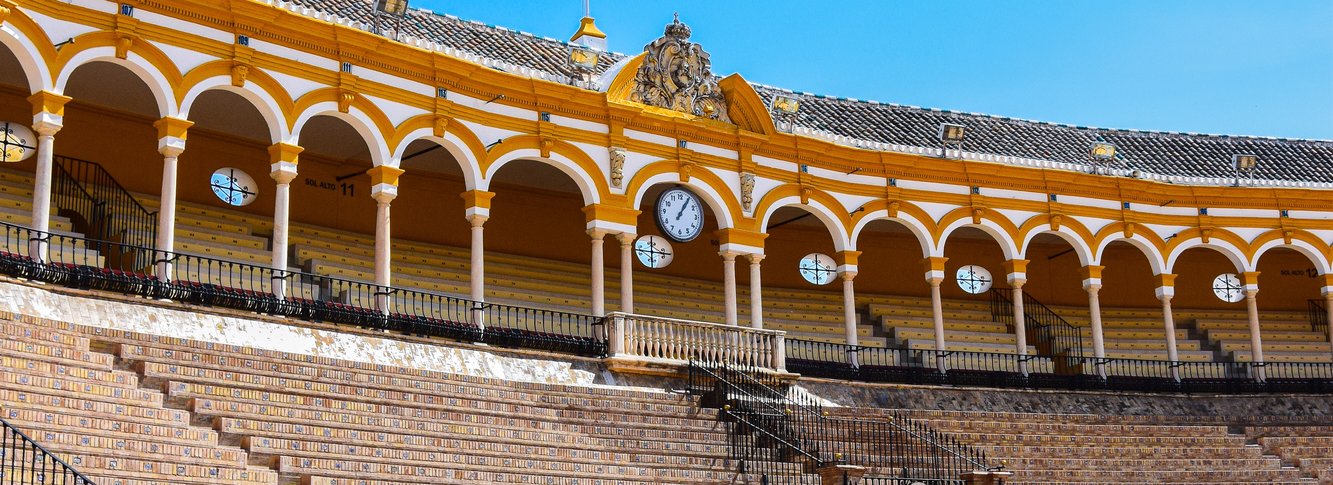| 7 mins read
In 2018, following a series of corruption scandals, the Spanish Socialist and Worker’s Party (PSOE) successfully toppled the People’s Party (PP) through a vote of no confidence in Prime Minister Mariano Rajoy. Rajoy’s authority had previously been undermined by the Madrid-based government's handling of the Catalan secessionist crisis, the biggest threat to the constitutional order since an unsuccessful military coup in February 1981. The PP now also faced competition for the conservative electorate through the consolidation of Ciudadanos (Citizens), the voice of non-secessionist Catalans, alongside the Spanish nationalist populist Vox party, the first major far-right player in post-Franco politics.
As the bête noire of Catalan nationalists, bullfights (corridas) were an obvious campaign ground for Vox's nativist and xenophobic political agenda, and site of struggle for the conservative vote. Thus, in an attempt to regain their conservative monopoly, the PP included former matador Miguel Abellán in their electoral lists for Madrid. Vox included Catalan matador Serafín Marín for Barcelona and banderillero (assistant bullfighter) Pablo Ciprés for Huesca.
No bullfighters were elected, although Abellán and Martín came close. The former's allegiance was rewarded with his political appointment as Director-General of Madrid's Centre for Taurine Activities (CAT), the first time a matador has been entrusted with this public role.
Culture wars
It has often been argued that nepotism is a defining characteristic both of bullfighting communities and of the period that constituted Spain's Transition to democracy in the 1970s and 1980s. Traditionally seen as a model of non-violent political normalisation, the success of the Transition has been questioned in Spain since the financial crash of 2008. Both the 15-M protest movement and Podemos have argued that the post-Franco Constitution is tainted by having been drafted by elites from the dictatorship, allowing for ‘sociological Francoism’ to continue into the twenty-first century, with corruption and paternalism going unchecked.
In the 2021 elections for the Madrid Regional Government, a combination of the incumbent President Isabel Díaz Ayuso's personal charisma and the effective populist campaign slogan ‘Communism or Liberty’ delivered the PP a landslide victory. Such recycling of Cold War rhetoric is symptomatic of the Spanish right co-opting the lexicon of freedom of expression and tolerance that had traditionally been associated with the anti-Francoist opposition of the Transition. This appropriation cannot be understood without reference to Catalan secessionism and debates surrounding the future of bullfighting.
Spain, Catalonia and bullfighting
In 2004, a motion was advanced at a Barcelona Town Hall meeting by a group of ecological and Catalan nationalist parties for the City Council to declare themselves as publicly opposed to bullfighting. The largely symbolic passing of this municipal law set a precedent for the Catalan parliament to ban corridas from taking place in 2011.
In 2016, a Spanish Constitutional Court ruling declared the Catalan ban to be illegal, as corridas constitute a form of national culture which regional and local governments are obligated to protect. Yet even prior to the official prohibition, bullfighting had largely disappeared from the Catalan landscape as a result of local governments’ systematically denying licences, effectively mandating prohibition by the back door.
In these circumstances, bullfighting has become a powerful tool for clawing back disaffected Vox voters living in backwaters, who often feel ignored by urban political elites and who generally have little connection with cultural activities disproportionately concentrated in the metropolis. Corridas at Las Ventas in Madrid and in Pamplona still frequently sell out, but emerging names have few opportunities to hone their profession in front of an audience, whilst the closure of many small-town rings has downsized the role bullfighting plays in Spanish society.
On the one hand, Catalan nationalists exploited a changing zeitgeist for their own purposes. Conversely, anti-Catalan sentiment served the interests of the taurine lobby elsewhere in Spain, leading the PP in Madrid to recognise its social and ecological value as ‘intangible cultural heritage’, granting the CAT access to exhibition spaces in public museums and celebrating bullfighting alongside the arts. Nevertheless, court rulings about the unconstitutional nature of prohibitions have not yet brought corridas back to Catalonia.
The (a)political fallacy
In the twenty-first century, there is ideological plurality within both the taurine lobby and Pedro Sánchez's government: former Vice-President Pablo Iglesias is vociferously opposed to bullfighting, whilst the PSOE Vice-President belongs to the Taurine Parliamentary Association and has written a prologue to the book Bulls from the Perspective of the Left.
A recurring non sequitur is taking the correct premise – that aficionados can be found from across the ideological spectrum – to arrive at the erroneous conclusion that bullfighting is therefore not a political matter. In spite of their manifest opposition, the pro- and anti-bullfighting lobbies share the assumption that, were bullfighting shown to be culture, then it would somehow be immune from criticism.
Yet discrimination has, in the view of the taurine lobby, come to the fore during the Covid-19 pandemic, when bullfighting professionals were denied the support promised to cultural workers. Accepting that taurine professionals ought to receive the financial support to which they are legally entitled is a less contentious claim than the broader supposition that bullfighting is rendered untouchable by the Constitution, the inalienability of which is one of the major political issues of contemporary Spanish society.
It is not implausible to predict that Las Ventas – the home of bullfighting in Madrid – may be rendered a museum over the course of the next decade. This would not constitute the end of the free world as we know it, but celebration of such a development ought to be tempered with an awareness of the political and cultural significance of an industry which predates football as a form of mass entertainment and that has been the source of inspiration for artists over centuries.
Need help using Wiley? Click here for help using Wiley


